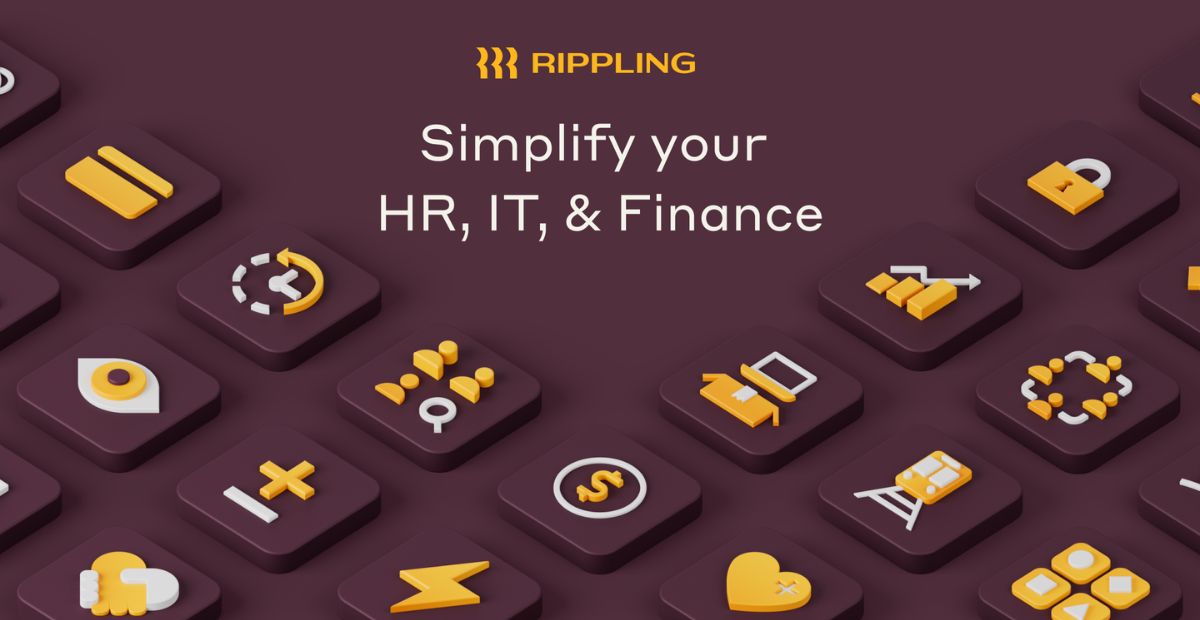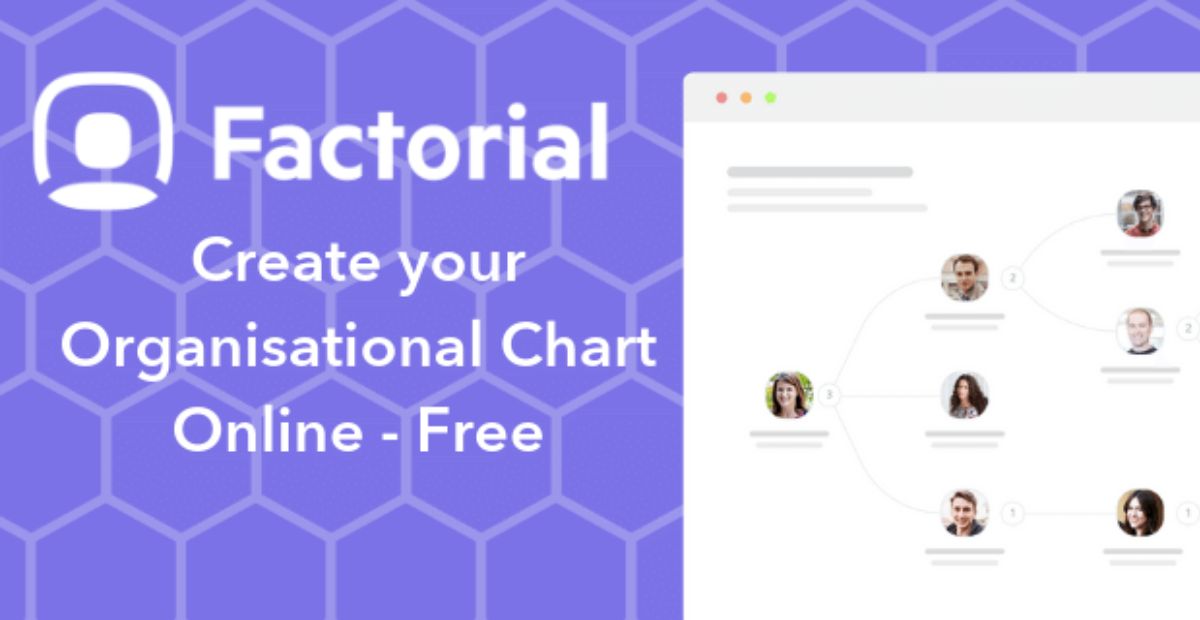Managing your small business’s HR responsibilities can feel overwhelming. A staggering 64% of SMEs in the UK believe they don’t have enough time to handle all HR tasks adequately.
This article unveils nine of the best HR software for small businesses, ready to streamline your processes and reduce your workload.
Ready to transform your human resources?
Let’s start.
Table of Contents
Key Takeaways
- Investing in the best HR software for small businesses offers numerous benefits, including increased efficiency and reduced errors in tasks like payroll handling, attendance tracking, and recruitment efforts.
- Tailored features are crucial in the best HR software for small businesses, addressing unique challenges and integrating seamlessly with other business tools. These features range from core HR components to advanced functions like performance tracking and compliance monitoring.
- The top nine HR software options for small businesses include Deel, Connecteam, Rippling, monday.com, Factorial, Paycor, Eddy, GoCo, and Paylocity. Each software has its own set of user-friendly features and flexible pricing plans that cater to the needs of small businesses.
Overview of Best HR Software for Small Businesses
HR software for small businesses offers a range of benefits and tailored features that can streamline your HR processes and help you efficiently manage your workforce.
● Benefits of using HR software
Investing in HR software offers a plethora of advantages to small businesses. Among the key perks is the increased efficiency it brings to otherwise complex and time-consuming human resources tasks.
With automation, businesses can streamline many processes such as payroll handling, attendance tracking, benefits management, and recruitment efforts. This not only saves valuable time but also reduces the likelihood of errors commonly associated with manual HR operations.
Further enhancing its appeal is the fact that most modern HR systems feature user-friendly interfaces designed for easy navigation.
With intuitive dashboards offering essential data at a glance and on-demand report generation capabilities, decision-making becomes more informed and less tedious.
By being able to access these insights anytime anywhere, managers can act swiftly when needed – contributing significantly towards improving overall business productivity and employee satisfaction rates.
● Tailored features for small businesses
Managing a small business involves dealing with unique challenges that generic HR software might not address. This underscores the importance of tailored features in any best HR software for small businesses.
Inclusive systems offer capabilities ranging from core HR components like payroll management to advanced functions such as performance tracking, time and attendance management, onboarding processes, and compliance tracking.
Additionally, an exemplary HR system for small businesses integrates seamlessly with other business tools utilized by the company.
It supports employee self-service options allowing employees to manage their personal information and professional development activities independently.
Such robust functionality enhances efficiency while freeing up your human resources team to focus on strategic tasks, fostering growth in your small enterprise.
Top 9 HR Software for Small Businesses
In this section, we present the top 9 HR software options specifically designed for small businesses.
#1. Deel

Revolutionizing the way businesses handle their payroll and compliance needs, Deel deserves a place amongst your top HR software considerations.
It’s an all-in-one platform that facilitates hiring, onboarding, payments, and compliance in over 150 countries – perfect for small businesses with global reach.
Its user-friendly interface makes managing remote teams simpler than ever, saving time on paperwork so you can focus on growth. With its ability to process mass payouts in multiple currencies and create custom contracts within minutes, it’s no wonder many small businesses are turning to Deel for their HR needs.
#2. Connecteam
Connecteam is a powerful HR software designed specifically for small businesses. It offers a wide range of features to help streamline and automate HR processes, making it easier than ever to manage your employees.
With Connecteam, you can easily handle time tracking, employee scheduling, shift management, communication, and more – all in one convenient platform. The software is incredibly user-friendly and intuitive to use, even for those with limited technical expertise.
Plus, it’s cloud-based which means you can access it from anywhere at any time. Connecteam is an affordable solution that provides exceptional value for small businesses looking to improve their HR operations without breaking the bank.
#3. Rippling

Rippling is a top HR software solution for small businesses that offers a comprehensive set of features to streamline your human resources processes. With Rippling, you can easily manage employee data, track time and attendance, process payroll, and handle benefits administration all in one platform.
This cloud-based HR system is designed with small businesses in mind, providing tailored solutions to meet their specific needs.
One standout feature of Rippling is its intuitive interface and user-friendly design. It’s easy to navigate and allows you to automate many manual tasks, saving you time and effort.
Whether it’s onboarding new employees or managing performance reviews, Rippling simplifies the process so you can focus on growing your business.
Moreover, Rippling offers robust reporting capabilities that give you valuable insights into your workforce. You can generate customized reports on various metrics such as employee turnover rates, attendance patterns, and performance metrics.
These analytics help you make informed decisions about your HR strategies.
#4. monday.com
monday.com is an excellent HR software option for small businesses looking to streamline their operations. With its user-friendly interface and powerful features, monday.com allows you to manage tasks, track progress, and collaborate with ease.
From employee onboarding to time tracking and performance management, this software covers all your HR needs. Its customizable dashboards provide real-time insights into key metrics, enabling you to make data-driven decisions.
Pricing plans are flexible and affordable, making it a top choice for startups and growing companies. Implementing monday.com can significantly improve your efficiency and productivity while ensuring smooth HR processes for your small business.
#5. Factorial

Factorial is an excellent HR software option for small businesses looking to streamline their human resources processes. With its user-friendly interface and robust features, Factorial offers a comprehensive solution for managing employee data, time off requests, payroll, onboarding, and more.
This cloud-based HR software allows small businesses to easily track attendance and manage vacation requests while also offering features like document management and performance evaluations.
Factorial’s affordable pricing plans make it an attractive choice for startups and growing companies alike, providing them with the tools they need to effectively manage their workforce.
Secure and reliable, Factorial is a top HR software solution for small businesses in need of efficient HR management systems.
#6. Paycor
Paycor is a top HR software solution designed specifically for small businesses. With its user-friendly interface and comprehensive features, Paycor makes it easy to manage your employee data, payroll and benefits all in one place.
It offers robust tools for time tracking, scheduling, and attendance management, allowing you to streamline your workforce processes efficiently. Paycor also provides advanced reporting capabilities that help you gain insights into your HR metrics and make data-driven decisions.
Its cloud-based platform ensures accessibility from anywhere at any time. Additionally, Paycor offers excellent customer support to assist you throughout the implementation process.
Whether you’re a startup or an established small business looking to enhance your HR operations, Paycor is an affordable option that caters to all your needs effectively.
#7. Eddy
Eddy is a comprehensive HR software solution designed specifically for small businesses. It simplifies and automates various HR tasks, allowing you to streamline your processes and save time.
With Eddy, you can easily manage employee onboarding, maintain accurate records, track attendance and time off, process payroll efficiently, and stay compliant with employment laws.
One of the key features of Eddy is its user-friendly interface that makes navigation simple and intuitive. It offers customizable templates for important HR documents like offer letters and employee handbooks, so you can create professional-looking materials quickly.
Additionally, Eddy provides a central dashboard where you can access all employee information in one place.
Another advantage of using Eddy is its robust reporting capabilities. You can generate reports on crucial metrics such as workforce demographics, turnover rates, and performance reviews to gain valuable insights into your team’s productivity and engagement levels.
#8. GoCo
GoCo is a top HR software option for small businesses that provides a comprehensive suite of features to streamline and simplify your HR processes. With GoCo, you can easily manage employee onboarding, time-off tracking, benefits administration, and performance management all in one place.
The platform also includes built-in compliance tools to help ensure that your business stays compliant with labor laws and regulations. Additionally, GoCo offers seamless integrations with popular payroll providers, making it easier than ever to manage your company’s payroll.
Overall, GoCo is an affordable and user-friendly HR solution that can help small businesses save time and resources while effectively managing their human resources needs.
#9. Paylocity
Paylocity is one of the top HR software options for small businesses, providing a comprehensive solution to manage various HR tasks. With Paylocity, you can streamline your payroll processes, handle time and attendance tracking, administer benefits, and automate employee onboarding.
The system also offers advanced reporting capabilities, allowing you to gain valuable insights into your workforce data. Paylocity’s user-friendly interface makes it easy for even non-technical users to navigate the platform effortlessly.
Furthermore, their robust customer support ensures that any questions or issues you may encounter are promptly addressed. With its range of features and flexible pricing plans, Paylocity is an excellent choice for small businesses looking to efficiently manage their HR functions without breaking the bank.
How to Choose the Right HR Software for Your Small Business
To choose the right HR software for your small business, assess your HR needs, consider ease of use and scalability, evaluate customization options, check vendor reputation and customer support, and carefully consider cost considerations.
● Assessing your HR needs
Analyzing your HR requirements is crucial before selecting the right HR software for your small business. Consider the following factors:
- Company size and employee count: Determine if the software can handle your current employee count and support future growth.
- HR functions required: Identify which HR functions you need assistance with, such as recruitment, onboarding, time tracking, payroll, benefits administration, or performance management.
- Regulatory compliance: Ensure that the software aligns with local labor laws and compliance regulations relevant to your industry.
- Integration capabilities: Check if the software can integrate with other tools you use, such as accounting software or project management platforms.
- Reporting and analytics: Assess whether the software offers robust reporting capabilities to track key HR metrics and generate insights.
- Mobile accessibility: Determine if the software has a mobile app or responsive design for easy access on the go.
- Employee self-service features: Consider whether employees can access their own information, such as pay stubs or leave requests, through a self-service portal.
- User interface and ease of use: Look for user-friendly interfaces to ensure easy adoption by both HR professionals and employees.
- Budget considerations: Evaluate the cost of the software and identify any additional fees or hidden charges beyond the base price.
● Considering the ease of use and scalability
When choosing the right HR software for your small business, it is important to consider ease of use and scalability. You want a system that is user-friendly and intuitive so that you and your team can easily navigate through the software without any complications or extensive training.
Look for an interface that is clean, organized, and easy to understand.
In addition to ease of use, scalability is crucial for small businesses planning to grow in the future. As your company expands, you will need an HR software solution that can accommodate your increasing needs.
● Customization options
Customization options are an important factor to consider when choosing HR software for your small business. The ability to tailor the software to meet your specific needs can greatly enhance its effectiveness and efficiency.
Look for software that allows you to customize fields, forms, workflows, and reports according to your unique requirements. This will enable you to create a system that aligns perfectly with your business processes and enables smoother day-to-day operations.
With customization options, you can streamline tasks, automate processes, and ensure that the software works seamlessly with your existing systems.
By selecting HR software that offers robust customization capabilities, you can optimize productivity and achieve better results for your small business.
● Vendor reputation and customer support
Choosing HR software for your small business involves considering the vendor’s reputation and customer support. It is crucial to opt for a reputable vendor that has a solid track record in providing reliable and efficient HR solutions.
Look for vendors with positive reviews and testimonials from other small businesses, as this indicates their credibility and quality of service. Additionally, consider the level of customer support they offer.
Make sure they have responsive support teams who are readily available to assist you whenever you encounter any issues or need guidance with the software. A vendor with an excellent reputation and dedicated customer support can help ensure a smooth implementation process and ongoing assistance as your business grows.
● Cost considerations
As a small business, it’s crucial to consider the cost of implementing HR software. While price shouldn’t be the sole deciding factor, it’s important to find a solution that aligns with your budget.
Take into account both upfront costs and ongoing expenses such as monthly subscriptions or per-user fees. Additionally, consider any potential hidden costs like training or customization fees.
Look for software providers that offer pricing plans tailored to small businesses, offering scalable options that grow with you over time. Keep in mind that investing in quality HR software can ultimately save you money by streamlining processes and increasing efficiency within your organization.
Expert Tips for Selecting HR Software
Consider the importance of payroll integration when choosing HR software for your small business.
● Importance of payroll integration
Payroll integration is a crucial aspect to consider when selecting HR software for your small business. By integrating payroll with your HR system, you can streamline the entire payroll process, saving time and reducing errors.
With payroll integration, data is automatically transferred from your HR software to the payroll system, eliminating the need for manual data entry and ensuring accuracy.
This seamless integration also allows for better tracking of employee hours, benefits, and deductions, making it easier to generate accurate paychecks and adhere to tax regulations.
Overall, payroll integration simplifies one of the most critical aspects of managing a small business’s workforce, freeing up valuable time that can be better spent on other important tasks.
● Factors to consider when evaluating HR software
- Identify your specific needs: Determine the key HR functions you require and make sure the software offers those features.
- Scalability: Consider whether the software can grow with your business and handle an increasing number of employees.
- Ease of use: Look for user-friendly interfaces and intuitive navigation to ensure a smooth adoption process for your team.
- Customization options: Check if the software allows you to tailor it to fit your unique business processes and requirements.
- Integration capabilities: Assess whether the HR software can seamlessly integrate with other tools or systems you use, such as payroll or time-tracking software.
- Vendor reputation and customer support: Research the reputation of the software provider and their customer support services to ensure reliable assistance when needed.
- Cost considerations: Evaluate both upfront costs and ongoing fees, including any additional charges for extra features or user licenses.
- Data security measures: Ensure that the software has sufficient safeguards in place to protect sensitive employee data from unauthorized access or breaches.
- Mobile accessibility: Determine if the HR software can be accessed through mobile devices, allowing flexibility for remote work or on-the-go management.
- Reporting and analytics capabilities: Check if the software provides robust reporting features that allow you to track key HR metrics and generate insightful analytics.
- Employee self-service options: Look for features that empower employees to access their own information, request time off, or update personal details without administrative intervention.
- Training and implementation support: Consider whether the software provider offers training resources or assistance during the implementation phase to help streamline adoption within your organization.
● Best practices for implementation and utilization
Implementing and utilizing HR software effectively is crucial for small businesses to streamline their HR processes. Here are some best practices to consider:
- Plan ahead: Before implementing HR software, assess your current HR processes and identify areas that need improvement. Set clear goals and objectives for what you want the software to achieve.
- Get buy-in from stakeholders: Involve key stakeholders, such as HR managers and department heads, in the decision-making process. Ensure they understand the benefits of using the software and gain their support.
- Provide training: Train employees on how to use the HR software effectively. Offer comprehensive training sessions or provide access to online tutorials and resources. Encourage employees to ask questions and provide ongoing support.
- Customization options: Take advantage of any customization features offered by the software. Tailor it to meet your specific business needs and workflows, ensuring that it aligns with your company’s unique requirements.
- Data migration: If you have existing employee data, ensure a smooth transition by properly migrating it into the new system. Double-check data accuracy and troubleshoot any issues before going live.
- Regular updates and maintenance: Stay up-to-date with new features and upgrades provided by the vendor. Implement regular system updates, carry out routine maintenance tasks, and ensure data security measures are in place.
- Evaluate results: Continuously monitor and evaluate how well the HR software is meeting your business needs. Collect feedback from users, analyze system performance metrics, and track efficiency gains, or cost savings generated as a result of using the software.
- Integration with other systems: Integrate your HR software with other business systems such as payroll or attendance tracking tools where possible for seamless data flow across different departments.
- Seek vendor support when needed: If you encounter any challenges or require assistance during implementation or day-to-day usage, reach out to the vendor’s customer support team promptly for timely resolution.
FAQs
What factors should I consider when choosing HR software for my small business?
When selecting HR software for your small business, it’s important to consider factors such as your specific needs and requirements, the size of your workforce, budget constraints, ease of use, the customer support offered by the software provider, and integration capabilities with other systems you may be using.
Can HR software help streamline my recruitment process?
Yes, many HR software solutions offer features that can help streamline the recruitment process. These features may include applicant tracking systems, automated job posting to multiple platforms, resume parsing and screening tools, and interview scheduling functionality.
How secure is my data in HR software?
Data security is a crucial consideration when choosing an HR software solution. Look for vendors who provide robust security measures such as encryption of sensitive data, regular backups, and disaster recovery plans. It’s also important to inquire about their compliance with relevant data protection regulations.
Is training provided for using HR software?
Most reputable HR software providers offer training resources to help users get up to speed on using their platforms effectively. This could include online documentation or tutorials, video guides, or even live training sessions conducted by their support team. Be sure to inquire about the availability of training options before making a decision on which provider to choose.
Conclusion
These 9 HR software options provide excellent solutions for small businesses looking to streamline their HR processes. With tailored features and affordable pricing plans, Deel, Connecteam, Rippling, monday.com, Factorial, Paycor, Eddy, GoCo, and Paylocity are all top contenders in the market.
By choosing the right HR software for your small business needs and implementing it effectively, you can improve employee management and propel your business toward success.
Related Post:







